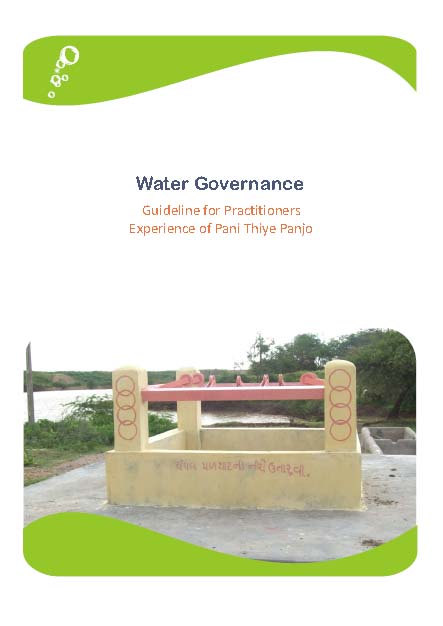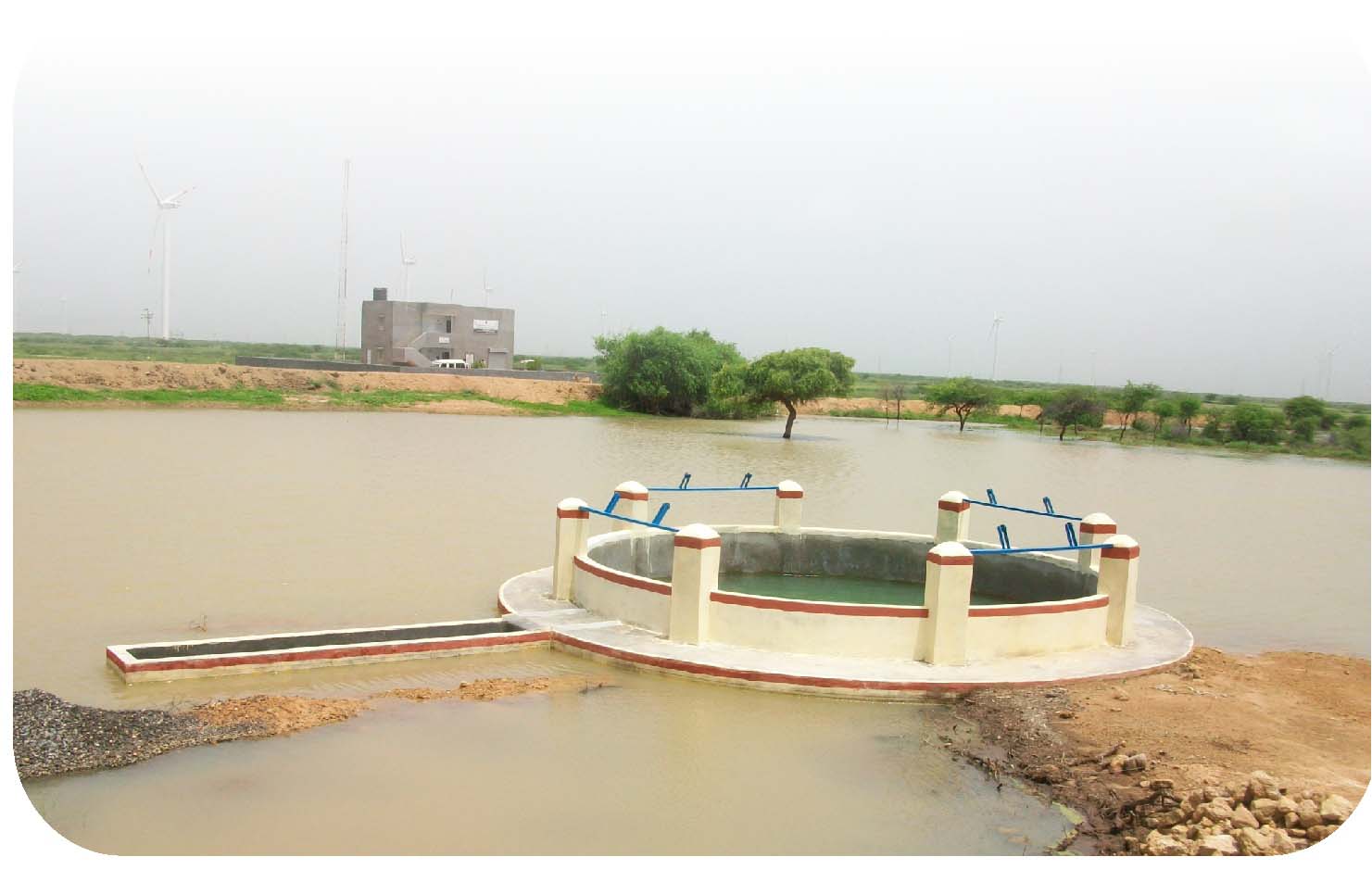 This report is based on the experience of women’s collectives promoted by Sahjeevan and of several member organizations of Abhiyan on local water governance, in particular on the demonstrated models of decentralized drinking water that they have taken up in several villages.
This report is based on the experience of women’s collectives promoted by Sahjeevan and of several member organizations of Abhiyan on local water governance, in particular on the demonstrated models of decentralized drinking water that they have taken up in several villages.
Water has been the central theme for development in Kutch. In the last two decades, a scaling up process of decentralized drinking water, popularly known as Pani Thiye Panjo, has been initiated in around hundred villages of Abdasa taluka in Kutch district of Gujarat focusing on development of local drinking water sources, their strengthening and building capacities of communities for maintenance and management of the systems to develop drinking water security at the village level.
The concept of Pani Thiye Panjo, has been well accepted as Abdasa model, which besides providing drinking water security, initiated policy dialogues at the local level on issues such as protection of groundwater, pricing mechanism of water (local vis-à-vis external sources), role of Panchayati Raj Institutions in water governance, role of local youth in developing their technical capacities and development of social capital in management of drinking water systems.
As per the rules of the Panchayati Raj, it is compulsory for the panchayat to create and register a Water Committee in the State of Gujarat at the panchayat level for works related to drinking water as per resolution dated 24/2002/1082, passed by the Gujarat Panchayat, Gruhnirman and Rural Development Department. The maintenance, safety and the preservation of the drinking water resources and its distribution developed by the water committees will be taken care of by the panchayat.
The responsibilities of the gram sabha in water governance are -
- Formation of the water committee according to the rules and regulation of the
 Panchayat.
Panchayat. - To ensure 33 percent women representation in the water committee and to discuss the agenda framed by them.
- To ensure that the water committee in the panchayat plays an active role.
- To ensure that the water committee meets regularly every month.
- To approve the rules and regulations for water scheme framed by the water committee.
- To take decision on levies of water tax and tariff.
- To frame rules and regulations for the protection of the drinking water resources and further to demarcate boundaries for the same.
- To take accounts of the water scheme from the Panchayat and the water committee.
As per this report, the indicators of good water governance by the panchayat include -
- The formation of the panchayat water committee should be according to the rules and regulations of the Panchayati Raj.
- The rules and regulations should be formed by the panchayat, water committee and the gram sabha to run water programme.
- The drinking water asset set up in the village should be registered in the panchayat asset register.
- The water committee works as a sub-committee of the panchayat.
- Through the panchayat water committee, for the management of the water programme, daily accounts book, receipt of the water tax, register of the water tax, register of the panchayat resolutions, register of the meeting minutes of the water committee, asset register, the budget, expense file, passbook, cheque book, etc. prepared by the panchayat for the water programme are to be maintained.





 Water_governance_guideline_for_practitioners_Sahjeevan_2011.pdf
Water_governance_guideline_for_practitioners_Sahjeevan_2011.pdf







